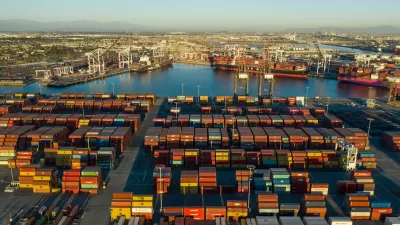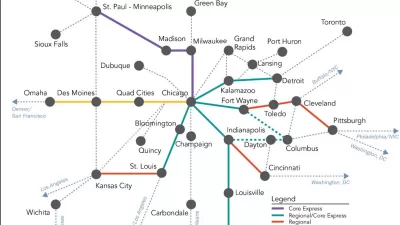As China embarks on the greatest rail-building investment since the U.S. built its transcontinental railroad, this article points to the urgent need to reform its state-controlled pricing system, both for freight and passengers, to make it effective.
"For decades, China has neglected investment in railroads in favor of building highways", resulting in an 'oversubscribed' rail system - both for freight and passengers.
"The nation's rails carry a quarter of global train cargo and passenger traffic on only 6% of the world's track, making its system the busiest on the planet."
"China is now undertaking the world's biggest railway expansion since the U.S. laid its transcontinental line in the 1860s. Beijing plans to spend $248 billion through 2020 on 75,000 miles of new track, for both freight and high-speed passenger lines. At that point, China's high-speed passenger network will likely be the biggest on earth."
However, this huge infrastructure investment belies China's main rail problem, according to Business Week - it's pricing system.
"China's Ministry of Railways, which operates the railroads, has a net profit margin of less than one percent on revenues of about $35 billion. The Ministry maintains majority control over all rail lines and sets freight rates for farm products and ticket prices for migrant workers at artificially low levels. It wouldn't comment for this article.
That pricing policy is politically smart but commercially ruinous.
Pressure on the Ministry of Railways to find the billions needed for all this expansion may eventually force it to loosen its grip on pricing and cede control of at least some of the railroads. "There is a lot of capital now that is very interested in building railroads," says Zhao Jian, a professor at Beijing Jiaotong University who researches railway reforms. Until that happens, China's rail industry will continue to attract more business than it can handle and fewer investors than it needs."
FULL STORY: China's Great Railway Expansion

Alabama: Trump Terminates Settlements for Black Communities Harmed By Raw Sewage
Trump deemed the landmark civil rights agreement “illegal DEI and environmental justice policy.”

Study: Maui’s Plan to Convert Vacation Rentals to Long-Term Housing Could Cause Nearly $1 Billion Economic Loss
The plan would reduce visitor accommodation by 25% resulting in 1,900 jobs lost.

Planetizen Federal Action Tracker
A weekly monitor of how Trump’s orders and actions are impacting planners and planning in America.

Wind Energy on the Rise Despite Federal Policy Reversal
The Trump administration is revoking federal support for renewable energy, but demand for new projects continues unabated.

Passengers Flock to Caltrain After Electrification
The new electric trains are running faster and more reliably, leading to strong ridership growth on the Bay Area rail system.

Texas Churches Rally Behind ‘Yes in God’s Back Yard’ Legislation
Religious leaders want the state to reduce zoning regulations to streamline leasing church-owned land to housing developers.
Urban Design for Planners 1: Software Tools
This six-course series explores essential urban design concepts using open source software and equips planners with the tools they need to participate fully in the urban design process.
Planning for Universal Design
Learn the tools for implementing Universal Design in planning regulations.
Caltrans
Smith Gee Studio
Institute for Housing and Urban Development Studies (IHS)
City of Grandview
Harvard GSD Executive Education
Toledo-Lucas County Plan Commissions
Salt Lake City
NYU Wagner Graduate School of Public Service





























